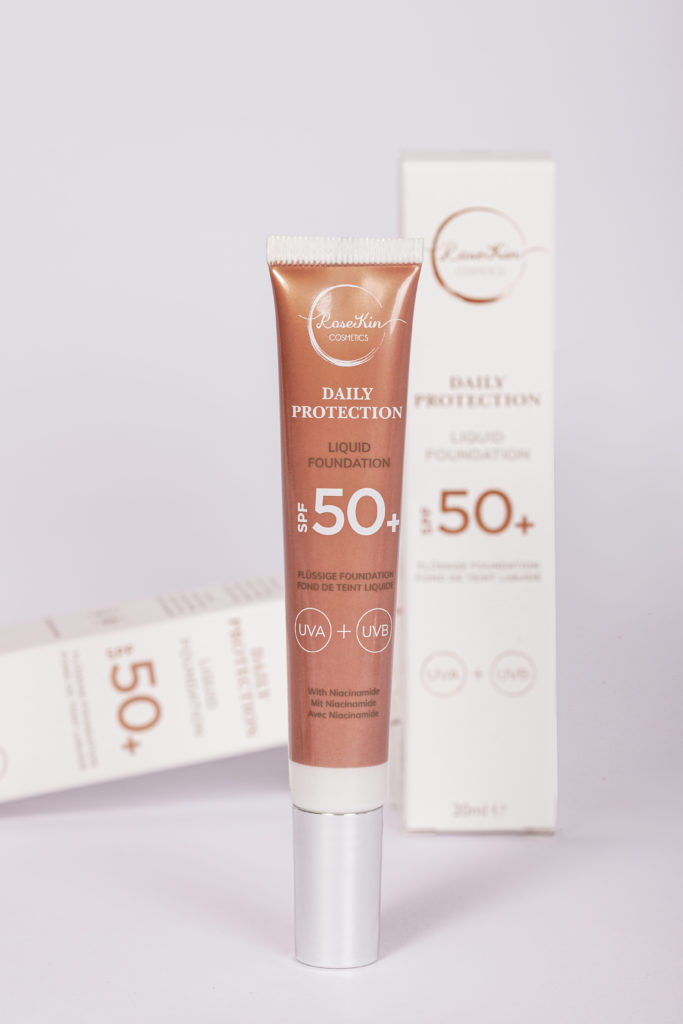Why are tinted sunscreens the best product against blue light?
We live in a digital world, surrounded by screens and smartphones, where our lives are closely linked to technology. As we immerse ourselves in the digital pleasures of modern life, there are invisible forces that can affect our skin – particularly blue light. Although we have heard a lot about the harmful effects of the sun on our skin, the impact of blue light remains a mystery. In this article, we will delve into the question: How does blue light cause pigmentation? Why are tinted sunscreens the best product against blue light? We will explore the latest findings and discover which products can protect your skin from this “modern threat.”
What is artificial blue light?
An important source of blue light is the sun, but nowadays, we are also exposed to artificial blue light from electronic devices like smartphones, tablets, computers, and LED lights. These devices emit blue light to illuminate your screens. Prolonged use of such devices can lead to long-term exposure to blue light, especially in the evenings, raising concerns about potential health and sleep effects.
A key feature of blue light is its higher energy compared to some other colors in the visible spectrum. This can affect various aspects of the human body, including the circadian rhythm (the sleep-wake cycle) and eye health. Excessive exposure to blue light, especially in the evening, can suppress the production of the sleep hormone melatonin and disrupt sleep. Additionally, blue light is associated with tired eyes and potential damage to the retinas of the eyes with prolonged exposure.
For these reasons, products and technologies have been developed to filter or reduce blue light to limit potential negative effects, especially with long-term use of electronic devices.

The Effects of Blue Light on the Skin
Artificial blue light has been linked to potential skin effects, but the extent of its harmfulness is not fully understood, and further research is needed to draw final conclusions. Here are some key considerations:
Skin Aging: Some studies suggest that prolonged exposure to artificial blue light can accelerate skin aging. This is attributed to the production of free radicals and oxidative stress in skin cells. Excessive oxidative stress can lead to wrinkles and fine lines.
Skin Pigmentation: There is some evidence that exposure to blue light may contribute to hyperpigmentation or dark spots on the skin. This could be caused by inflammatory reactions in the skin following exposure to blue light.
Blue light can promote hyperpigmentation by triggering inflammation and the release of pro-inflammatory molecules such as cytokines, which attract immune cells to the inflamed area. At the same time, blue light stimulates melanocytes, the cells that produce melanin. Melanin is the pigment that determines skin color and protects against UV radiation from the sun. However, stress, including inflammation, can also stimulate melanin production.
These inflammatory reactions and increased activity of melanocytes can lead to excessive melanin production in certain areas of the skin, resulting in hyperpigmentation. Hyperpigmentation appears as dark spots or patches on the skin, such as freckles, age spots, and melasma.
The connection between blue light and hyperpigmentation is still being researched. Not everyone responds the same way to blue light due to genetic and individual factors.
Disruption of Circadian Rhythm: Long-term use of electronic devices, especially late at night, can disrupt sleep by suppressing the production of melatonin. Sleep disturbances can, in turn, cause skin issues such as a dull complexion and dark circles under the eyes.
However, it’s worth noting that most of these effects only occur with prolonged and intense exposure to artificial blue light. For most people, daily activities involving electronic devices do not pose a serious threat to the skin. Nevertheless, it’s advisable to take some precautions:
Limit Screen Time: Try to limit the time you spend in front of screens each day, especially before bedtime.
Use Sunscreen: Wearing broad-spectrum sunscreen can help protect the skin from the harmful effects of both UV and blue light.
Consider Blue Light Filters: Some glasses and screen filters are designed to block blue light. Using such filters can reduce exposure to blue light.
Overall, there is much to understand about the interaction between artificial blue light and the skin. It’s important to be cautious, but there’s no need to panic. Adopting a balanced lifestyle, including a healthy diet, regular skincare, and moderate use of electronic devices, can help maintain the health and appearance of your skin in our technology-driven era.

Blue Light and the Use of Foundation
Foundation can contribute to protection against blue light in the following ways:
-Barrier formation: Foundation and makeup products create a physical barrier on the skin. Although this barrier wasn’t specifically designed to block blue light, it can prevent some of the light from directly reaching the skin, providing protection.
-Reflection and dispersion: Certain ingredients in foundation, such as titanium dioxide and zinc oxide, can easily reflect and scatter blue light. These ingredients are often found in sunscreens and makeup products to offer protection against UV and visible light, including blue light.
-Pigmentation: Some foundations and makeup products contain pigments like iron oxides (look for “Iron Oxides” in the ingredient list) that can absorb and reduce blue light. This works similarly to sunscreens that absorb UV radiation.
-Combination with sunscreen: An even more effective approach to protect against both UV and blue light is to combine foundation with sunscreen, such as the Daily Protection Foundation, specifically designed to block blue light. This enhances protection.

Summary
While we are familiar with the harmful effects of sunlight, the impact of artificial blue light originating from electronic devices is still largely unknown. In this article, we’ve examined the relationship between blue light and the skin, with a particular focus on potential pigmentation effects.
Blue light, both from the sun and screens, has the potential to accelerate skin aging and pigmentation issues. Studies suggest that prolonged exposure to artificial blue light may contribute to skin aging and hyperpigmentation. This occurs because blue light can activate inflammation in the skin and stimulate melanin production. These inflammatory reactions and increased melanin production can lead to dark spots on the skin, such as freckles, age spots, and melasma.
Although the full understanding of the harm caused by blue light is not yet achieved, it’s wise to take precautions, such as limiting screen time and using broad-spectrum sunscreen. However, the most effective protection against blue light can be provided by using foundation with integrated SPF. This foundation not only forms a physical barrier but also reflects and absorbs blue light. Combining foundation with sunscreen further enhances protection. Check out our SPF 50 Foundation for more information.
RoseKin Cosmetics – more than just Make-up
Lots of Love
Your RoseKin
You only have one skin – don’t forget to protect it as much as possible.
IF YOUR SKIN TELLS YOUR STORY, YOU DESERVE TO LOOK YOUNG – PROTECT IT DAILY
#DEINEHAUTVERGISSTNIE
For more information about our SPF50+ products click here
Follow us on Instagram

